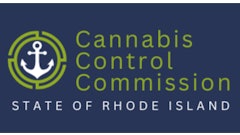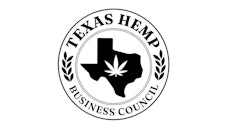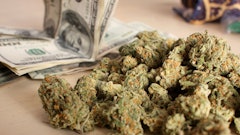
An op-ed contributed to Cannabis Business Times by Law Enforcement Against Prohibition (LEAP)
The job of law enforcement has always been to protect communities, but marijuana prohibition has created a distraction to effectively maintaining public safety. Marijuana prohibition and the drug war as a whole have contributed to an overall decrease in public safety and misdirection of valuable resources. Here’s why law enforcement across the country and around the world are pushing for marijuana legalization:
- Marijuana prohibition overburdens the legal system. Each marijuana arrest wastes time and resources at every step of the legal process. The arresting officer must file paperwork and possibly make a court appearance, which account for time and money that could be spent going after people who are actually posing a danger to others. Lawyers, often public defenders, take on numerous drug cases at once, and a presiding judge must waste his or her time hearing those cases. In 2013, 82 percent of all drug arrests were for possession of a controlled substance, and more than 40 percent of those arrests were for marijuana. Each one of those cases contributes to overburdening a system meant to prosecute dangerous criminals and keep our streets safer.
 LEAP Shield Logo (2)
LEAP Shield Logo (2)
- Marijuana prohibition is detrimental to public health. Although extreme cases are rare, marijuana addiction does happen. Individuals who need assistance from medical or psychotherapeutic professionals shouldn’t be put in jail. Addiction is an issue to be assisted by compassionate doctors and other mental healthcare providers; cops, lawyers and judges can’t arrest people out of addiction.Safe medical marijuana access is also a major point of concern. Researchers and doctors in consultation with their patients should be the ones deciding the best medical treatment options for a person--not police and not politicians. Patients who say marijuana works for them should not be subjected to the dangers of an unregulated market or have to uproot their families to live in a state that doesn’t treat them like a criminal. Patients should never have to forego treatment for fear of being arrested or be considered a criminal for using medicine that helps them. Arresting elderly, sick and disabled individuals is not only a ridiculous waste of time when we have murderers and rapists running free; it’s unethical, and makes marijuana use more dangerous.
- Marijuana prohibition is a massive waste of law enforcement time and resources. Cops have better things to do than arrest nonviolent adults for using marijuana. We used to solve 90 percent of murder cases, and now we solve 64 percent. We solve an embarrassing 40 percent of rape cases. There are an estimated 400,000 unprocessed rape kits, containing crucial evidence to prosecute dangerous criminals, sitting in storage across the country. Meanwhile, cops are encouraged, even incentivized, to prioritize drug cases. We owe it to the countless victims of horrifying and brutal offenses to refocus law enforcement efforts on solving these crimes. It will help repair the vastly damaged relationships between communities and police, and help the criminal justice system live up to its intended purpose.
- Marijuana prohibition puts children at greater risk. Legalizing marijuana and selling it in childproof containers is one of the best ways to keep children safe from accidental ingestion. In most places, marijuana access is currently unlimited, unregulated and uncontrolled because it is prohibited. It’s already being sold. We need to ask ourselves: Who do we want in charge of those sales: licensed businesspeople or people selling on the underground market? Unregulated marijuana may contain toxic molds or be laced with other, far more dangerous substances. Quite simply, drug dealers generally don’t care about the age of their customers.
- Marijuana prohibition funds dangerous criminal organizations. If reducing the violence and brutality of drug cartels and gangs is a national priority, legalizing marijuana must also be a priority. Criminalizing a high-value commodity only serves to create wealth for individuals seeking to profit. Cartels have been known to make a forceful split into smaller, more violent factions, after the arrest of a leader. Arresting cartel leaders doesn’t stop them from doing business, nor does it permanently slow the flow of drugs or stop that leader from having influence.While most marijuana in the United States is now grown within our borders, a large percentage of profits made by drug cartels are from marijuana sales here. Marijuana is often called the “cash crop” of Mexican cartels. In fact, legalizing medical marijuana access and recreational access in only a few states has already begun to weaken their cash flow. Widespread marijuana legalization in the United States would devastate the enormous and lethal underground networks brought about by prohibition.
Law Enforcement Against Prohibition (LEAP) is a group of police, prosecutors, judges and other law enforcement officials who want to end the War on Drugs.
Feature photo: © Brphoto | Dreamstime.com




























